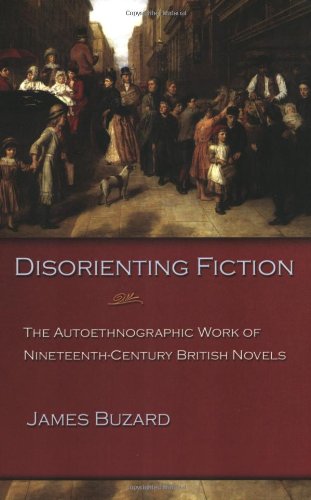

Most ebook files are in PDF format, so you can easily read them using various software such as Foxit Reader or directly on the Google Chrome browser.
Some ebook files are released by publishers in other formats such as .awz, .mobi, .epub, .fb2, etc. You may need to install specific software to read these formats on mobile/PC, such as Calibre.
Please read the tutorial at this link: https://ebookbell.com/faq
We offer FREE conversion to the popular formats you request; however, this may take some time. Therefore, right after payment, please email us, and we will try to provide the service as quickly as possible.
For some exceptional file formats or broken links (if any), please refrain from opening any disputes. Instead, email us first, and we will try to assist within a maximum of 6 hours.
EbookBell Team

0.0
0 reviewsDisorienting Fiction shows how English Victorian novels appropriated and anglicized an autoethnographic mode of fiction developed early in the nineteenth century by the Irish authors of the National Tale and, most influentially, by Walter Scott. Buzard demonstrates that whereas the fiction of these non-English British subjects devoted itself to describing and defending (but also inventing) the cultural autonomy of peripheral regions, the English novels that followed them worked to imagine limited and mappable versions of English or British culture in reaction against the potential evacuation of cultural distinctiveness threatened by Britain's own commercial and imperial expansion. These latter novels attempted to forestall the self-incurred liabilities of a nation whose unprecedented reach and power tempted it to universalize and export its own customs, to treat them as simply equivalent to a globally applicable civilization. For many Victorian novelists, a nation facing the prospect of being able to go and to exercise its influence just about anywhere in the world also faced the danger of turning itself into a cultural nowhere. The complex autoethnographic work of nineteenth-century British novels was thus a labor to disorient or de-globalize British national imaginings, and novelists mobilized and freighted with new significance some basic elements of prose narrative in their efforts to write British culture into being.
Sure to provoke debate, this book offers a commanding reassessment of a major moment in the history of British literature.